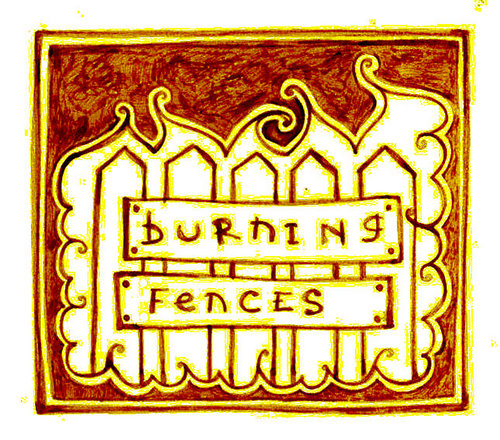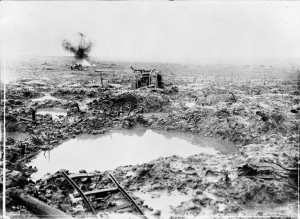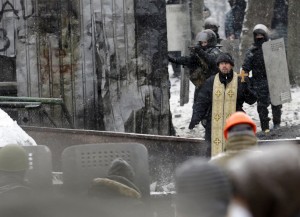It has been a difficult month.
After months of planning, the intercultural conference I was organising was cancelled at the last minute due to a lack of funding. This wasn’t a minor event or distraction. I had invested a huge amount of energy and passion into it and had a great vision for it. It was meant to be a space where people from vastly different cultural backgrounds could come together to dream: a fragile but vital act in a world increasingly defined by division.
And yet, with a single email, the structure we had painstakingly built collapsed.
The cancellation wasn’t just an administrative setback; it felt like an indictment. Had I been naïve to believe this work mattered enough to secure funding? Was intercultural ministry just a well-meaning aspiration rather than a necessity? As I sat with the news, I felt the creeping temptation to retreat; to step back from the discomfort of advocating for something that, apparently, wasn’t a priority for everyone else.
But instead of stepping back, I found myself writing from the ruins.
With the conference gone, I turned to the academic journal article I had been meaning to write for months. What had previously felt like an abstract exercise, an attempt to articulate ideas that had been swirling in my mind, now became urgent. The cancellation forced me to confront the very questions I had been wrestling with: Why does intercultural ministry matter? Why does it so often feel like the latest fad? How do I articulate its significance, not as an optional endeavour but as a necessary gift to the Church of England?
Perhaps this was what I needed. The push to put into words what I had been struggling to articulate. The conference would have been an event, but writing would be an argument, a case that could not be as easily dismissed as a line in a budget.
And so, in the space where the conference should have been, I wrote.
Intercultural ministry inhabits no man’s land: the space between entrenched identities, where categories lose their certainty and encounter becomes possible. It is a place where cultural and theological boundaries are suspended just long enough for something new to emerge.
But it is not a comfortable space. The world prefers fortifications, fixed identities, clear allegiances, firm distinctions between inside and outside. Even within the Church, we too often treat diversity as a problem to be solved rather than a gift to be received.
Yet no man’s land is where transformation happens. It is where encounter moves beyond tolerance into something riskier: the possibility of being changed. It is a space that resists resolution, where we are required to remain, even when there are no clear answers.
Augustine’s corpus permixtum offers a theological vision of this space. The Church, he insists, is always mixed, unfinished, in pilgrimage, provisional until the eschaton. Against the Donatists, who sought a pure Church free from compromise, Augustine argued that any attempt to enforce purity before the final judgment was not just futile but theologically misguided. The wheat and tares must grow together. To be the Church is to inhabit that tension.
This is no man’s land as a theological reality. It is not an unfortunate byproduct of cultural difference but the very space where grace does its work. The impulse to resolve, to fix identity, to enforce certainty. These are the real dangers. Augustine understood that provisionality is not weakness but faithfulness: the refusal to collapse history into resolution, the willingness to dwell in the unfolding mystery of God’s work.
But if no man’s land is the necessary site of encounter, how do we remain there without being paralysed by uncertainty? How do we engage without defaulting to either avoidance or control?
Improvisation is what allows us to remain in no man land. It is not the absence of structure but the ability to shape meaning in real time. It is the posture of responsiveness, the refusal to impose a script onto an encounter before the other has had a chance to speak.
The instinct, in uncertain spaces, is either to withdraw or to dominate, to retreat to what we know or to force an outcome. But improvisation resists both. It assumes that truth unfolds in relationship, that we do not come to intercultural engagement with all the answers but discover them in the process.
Stanley Hauerwas speaks of Christian ethics as improvisation within a shared narrative. We do not act in a vacuum; we inherit a story but the story itself remains in motion. Kevin Vanhoozer extends this further, describing doctrine as improvisation in response to history as an ongoing engagement with God’s unfolding work in the world.
Improvisation allows us to stay in no man’s land when the temptation is to resolve the tension too quickly. It allows us to respond in the moment, to listen deeply, to shape meaning as we go. Improvisation without direction, however, can become either chaotic or manipulative. It requires an ethic as a way of ensuring that our engagement is neither passive nor coercive, but genuinely transformative.
If improvisation is the mode by which we remain in no man’s land, then inclusive othering is the ethic that ensures we do so faithfully.
Othering is often framed as exclusion, a way of defining oneself against another. Inclusive othering refuses this binary. It acknowledges difference without reducing it to opposition. It insists that engagement is possible without assimilation, that unity need not come at the cost of integrity.
Paul Ricoeur warns against two failures: the absolutisation of culture, where difference becomes impenetrable, and the erasure of culture, where distinctiveness is lost in the pursuit of sameness. Inclusive othering navigates between these extremes. It allows for mutual transformation without coercion.
This is not comfortable. It requires a commitment to remain in the tension of difference, to resist the easy exits of withdrawal or dominance. It asks us to trust that relationship itself is formative and that even when no agreement is reached, something vital is taking place.
And so, I return to the original question: Is intercultural ministry a necessity, or just a luxury?
Funding has not been secured, in part because the argument for intercultural ministry has not been persuasive. Writing forced me to clarify what I had already sensed: this work is not peripheral. It is the only viable way forward.
Without it, we entrench division. Without it, we mistake tolerance for engagement, proximity for relationship. Without it, the Church risks irrelevance, offering certainty when the world cries out for wisdom.
The Church of England finds itself caught between conflicting pressures: a fractured institution seeking coherence, a shifting society demanding relevance, a cultural landscape marked by division and distrust. It is tempting to respond to these crises with control, to seek definitive solutions, to shore up institutional identity in the face of decline.
What if the way forward is not resolution, but a deeper commitment to provisionality? What if, rather than retreating to entrenched positions, we learned to inhabit no man’s land? To lead not with fixed answers but with an openness to encounter? To rediscover the art of improvisation, responding to the Spirit’s movement in history rather than dictating the terms of engagement? To embrace inclusive othering, holding our convictions with integrity while remaining radically open to the transformation that only relationship can bring?
This is not weakness. It is faithfulness.
The Church is being called, once again, into the risk of relationship; not to dictate, but to dwell; not to dominate, but to discern.
Intercultural ministry is the work of inhabiting no man’s land, of improvising faithfully in the face of uncertainty, of othering in a way that does not exclude but transforms.
If the Church of England is serious about its future, it must learn to stand in this space. Not as a concession, but as a calling.
Improvisation remains. No man’s land remains. And that is precisely where we must learn to stand.





 …Ok. Since I wrote that reflection there has been a growing sense of some footing being lost amongst us. We have felt, at different moments, that we have lost our way or the passion has waned. This has been due to various small events in the life of our community which have combined to create not a destruction or a despair but a niggle, a question to arise: what are we doing?
…Ok. Since I wrote that reflection there has been a growing sense of some footing being lost amongst us. We have felt, at different moments, that we have lost our way or the passion has waned. This has been due to various small events in the life of our community which have combined to create not a destruction or a despair but a niggle, a question to arise: what are we doing? A wise brother amongst us wrote a deeply honest and profound response to my call for a discussion. He named the beauty of Burning Fences as ‘a clearing’. He writes,
A wise brother amongst us wrote a deeply honest and profound response to my call for a discussion. He named the beauty of Burning Fences as ‘a clearing’. He writes, This is our quest: to inhabit, together, No-Man’s Land. To share the space making no claim on it for ourselves or the parties, agendas and personal empires which we are tempted to enforce. We desire, however, to build our home there for to be at peace one must feel a sense of belonging. To what are we committing and how can that be spoken in this between place?
This is our quest: to inhabit, together, No-Man’s Land. To share the space making no claim on it for ourselves or the parties, agendas and personal empires which we are tempted to enforce. We desire, however, to build our home there for to be at peace one must feel a sense of belonging. To what are we committing and how can that be spoken in this between place?